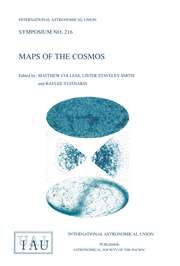Article contents
Can Disks Produce Companions by Gravitational Fragmentation?
Published online by Cambridge University Press: 13 May 2016
Abstract
The nonlinear outcome of gravitational instabilities in disks depends critically on the thermal physics of the gas. Under conditions where thermal energy is lost efficiently, disks disrupt into dense arms, arclets, and clumps. However, the evidence about whether clumps can ever become permanent bound objects is currently inconclusive. Under conditions where cooling is less efficient or where a balance between heating and cooling is achieved, the amplitudes reached by gravitational instabilities are relatively modest. The result is disk heating and transport of mass and angular momentum rather than condensation of bound companions. Future numerical simulations need to resolve the disk vertical structure and include more realistic equations of state and energy transport.
- Type
- IX. Theoretical Context - Detailed Calculations
- Information
- Symposium - International Astronomical Union , Volume 200: The Formation of Binary Stars , 2001 , pp. 381 - 390
- Copyright
- Copyright © Astronomical Society of the Pacific 2001
References
- 1
- Cited by


